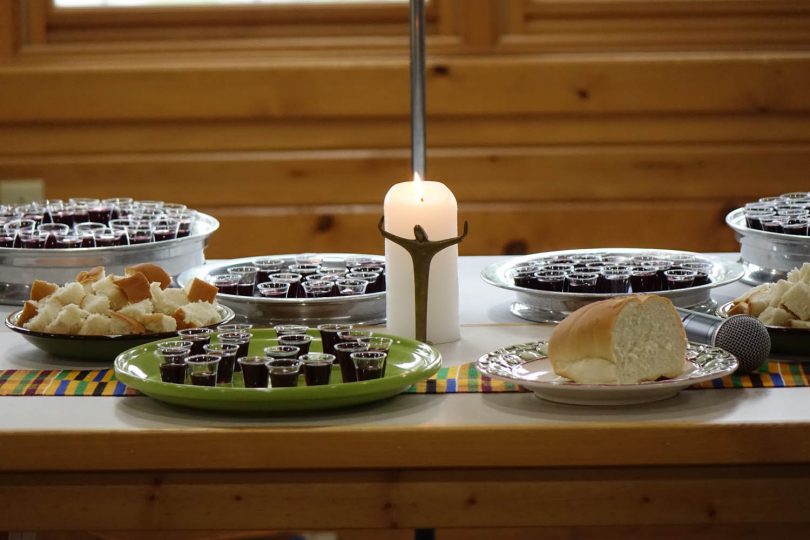Fourth Sunday of Easter
“Sheep” is an ambiguous English word. It’s an animal . . . or is it referring to many such animals? Its singular form is the same as its plural. And nowadays, with the pronoun “they” often used as a non-gendered reference to one individual, we might be tempted to read it as singular, as one sheep. But in contrast to our individualistic society, Jesus is talking, not to me, but to us—his (plural) sheep, his followers, in relationship with him and with one another.
As the shepherd who guards the gate, as the gate himself, Jesus gives us, first and foremost, relationship—with him and with one another. Zinzendorf said it this way: “The nearer each one comes in knowing the Savior, the more enriched, more glad of heart, and more unwavering grows communion with his members.” In other words, the closer each one of us gets to Jesus, the closer we become to one another.
Following Jesus isn’t a solitary activity. It’s about living in community with one another, in the confidence that Jesus calls each of us by name; offers us life—together—in abundant joy; and goes before us wherever he calls us to go. And elsewhere we read that if we choose not to hear his voice—when we wander off in rugged independence and thus get lost—Jesus comes to look for us and bring us home, back into the community, rejoicing.
May we listen for his voice, calling each one of us by name, calling us into relationship with him and with others. May we know his voice and follow him. May it always be true that “We’re his sheep and know his voice. . . . Yea, our very names he knows. . . . Amen, yea, our lot is blest.”
Nola Reed Knouse, Moravian pastor
director, Moravian Music Foundation

